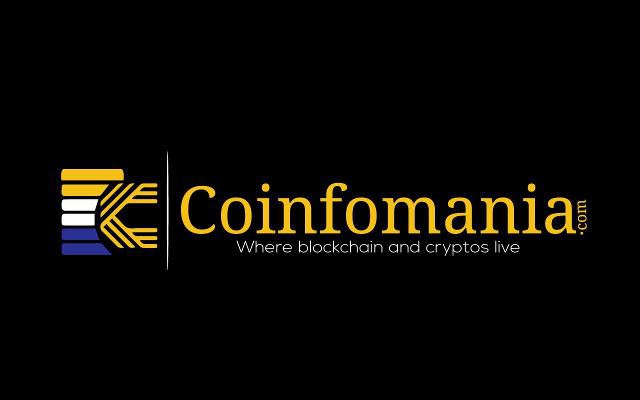Senate To Scrap Unpopular SEC Anti-Crypto Custody Rule (SAB 121)
0
0

Today, Thursday, the Senate will vote on a resolution aimed at repealing controversial accounting guidance from the Securities and Exchange Commission (SEC), which critics argue has hindered investment banks from offering large-scale crypto custody services. This move is anticipated to garner sufficient bipartisan support to pass, according to The Block.
Background on SAB 121
The resolution’s potential success is welcomed by various groups, including lawmakers, investment banks, crypto investors, and even some crypto skeptics, who usually agree on very little. They all argue that SEC Staff Accounting Bulletin 121, commonly referred to as SAB 121, should be revoked because it mandates that banks treat crypto assets differently from other types of assets.
Sean Tuffy, a banking regulation expert and self-described crypto skeptic, finds the current rules for crypto custody excessive. He suggests that revisiting how crypto custody is regulated is crucial. To understand why SAB 121 is so contentious, it’s essential to delve into its impact on exchange-traded funds (ETFs).
ETF issuers typically pay custodians, often banks, to safeguard the assets underlying the funds. Major institutions like BNY Mellon, JPMorgan, and State Street have substantial custody operations in the United States. However, none of these names are involved with spot Bitcoin ETFs. Instead, fund prospectuses list Coinbase, Gemini, BitGo, and Fidelity as custodians. This situation is at least partly due to SAB 121, which Tuffy describes as a “de facto crypto custody rule that really boxed out custodians.”
The Core Issue with SAB 121
Issued by the SEC in March 2022, SAB 121 advises entities safeguarding crypto assets on behalf of others to record these assets on their balance sheets as if they owned them. This requirement does not apply to traditional assets like stocks. Consequently, custodians, similar to other large banks, must hold capital reserves to offset risky on-balance sheet items to fund their positions in the event of a default. This necessity is costly, as the capital held in reserve could otherwise be leveraged for revenue.
The uncertainty regarding the exact amount banks would need to hold against crypto assets and whether the SEC would enforce this guidance has reportedly deterred significant firms, including BNY Mellon, State Street, and Nasdaq, from entering the crypto custody business. This hesitation is considered problematic by lawmakers like Republican Mike Flood, who supports the anti-SAB 121 resolution. He argues that excluding heavily regulated and experienced banks from the crypto custody business places investors’ assets at greater risk.
Tomorrow, the Senate will vote on the SAB-121 repeal.
It may be the only thing the crypto and tradfi industry agree upon.
First, to re-iterate, SAB-121 is the rule that the SEC unilaterally adopted with no consultation with the industry that says the following:
Unlike all…
— Austin Campbell (@CampbellJAustin) May 16, 2024
Concentration of Custody and Market Risks
One aspect of this risk is the concentration of Bitcoin underlying spot ETFs in a single provider. Coinbase manages the custody for eight out of ten ETFs, accounting for approximately 90% of the Bitcoin in these funds. This situation highlights the tension between SAB 121 and SEC Chair Gary Gensler’s stance that existing regulations are sufficient to police crypto markets. Tuffy questions the necessity of creating different custody rules for crypto if current regulations are adequate.
SAB 121 essentially transfers the custody of Bitcoin ETFs to Coinbase, which is currently being sued by the SEC for securities law violations. Tuffy describes this as a perplexing situation, illustrating how the SEC’s aggressive stance against crypto has created complications.
Concentration of Custody and Market Risks
Despite the mounting pressure to repeal SAB 121, Gensler appears reluctant to do so. He likely believes the guidance addresses risks identified by SEC staff in crypto markets, a stance reinforced by significant losses from the failures of crypto businesses like FTX and Celsius. However, he faces considerable pressure to either overturn SAB 121 or allow public input on it.
The Government Accountability Office (GAO), the US Congressional watchdog, stated in October that SAB 121 functions as a rule and should undergo the statutory public consultation process. Additionally, influential trade associations such as the Securities Industry and Financial Markets Association have advocated for investment banks to be excluded from SAB 121.
Gensler, however, has the backing of US President Joe Biden. Biden has indicated he would veto Flood’s resolution if it passes the Senate, emphasizing that restricting the SEC’s ability to maintain a comprehensive and effective financial regulatory framework for crypto assets would lead to significant financial instability and market uncertainty. The Senate’s upcoming vote on the resolution to repeal SAB 121 has generated substantial debate. The outcome could have significant implications for the future of crypto custody and the broader regulatory landscape for crypto assets in the United States.
The post Senate To Scrap Unpopular SEC Anti-Crypto Custody Rule (SAB 121) appeared first on Coinfomania.
0
0






